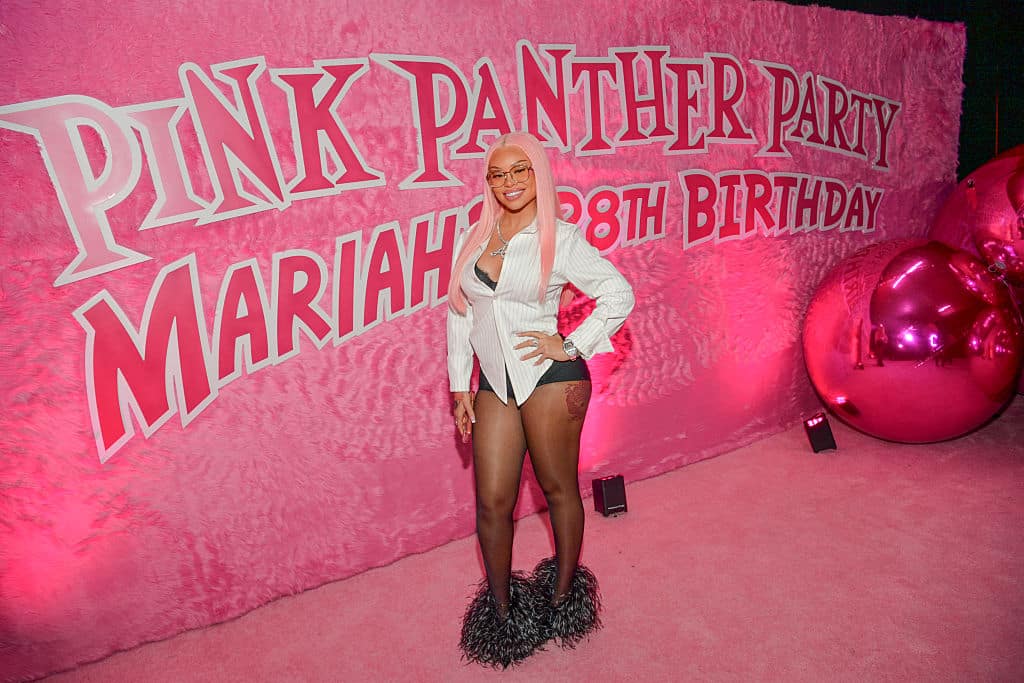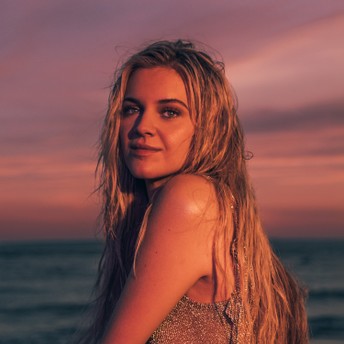Blog
Page: 2
Trending on Billboard The Wicked: For Good film soundtrack debuts in the top 10 across seven Billboard charts (dated Dec. 6), including No. 1 on both the Soundtracks ranking and Vinyl Albums. Led by its stars Cynthia Erivo and Ariana Grande, the album soars in with 122,000 equivalent album units earned in the United States […]

Trending on Billboard Need plans for Valentine’s Day? Look no further. Hilary Duff just announced a mini-residency in Las Vegas with dates happening all holiday weekend, with tickets going on sale soon. As revealed Tuesday (Dec. 2), the Lizzie McGuire alum will be taking the Voltaire stage at The Venetian in Sin City on Feb. […]
Source: Prince Williams / Getty
Latto clears the rumors that she’s not hiding any sister from the world.
A video went viral on TikTok of a woman who strongly resembles Big Mama and claimed to be her estranged sister. In the clip, @tarababy99 alleges that she and the rapper share the same father, saying, “They tryna figure out why Latto don’t claim me and sh*t. Y’all guess is as good as mine. I’m not giving them too much. I’m not spilling too much, but when I do write that book and do that podcast, she’s gonna be mad. I’mma give the people what they need to know.”
The Georgia rapper responded and urged fans not to fall for the rumors, saying, “Y’all believe anything in bold font when it comes to me.” She made it clear that the speculation surrounding her name is simply cap. Tara, the woman claiming to be Big Latto’s sister, alleges that the rapper doesn’t want to acknowledge her because she’s “the broke sister” in the family.
This isn’t the first time trolls online have tried to piece together details about Latto’s personal life. Rumors about who she’s dating have followed her for years, with many pointing to 21 Savage. The two were recently spotted on vacation together, though neither has confirmed nor denied the relationship. Back in 2024, Latto became the first woman to headline Hot 107.9’s Birthday Bash.
During her set, she brought out a surprise, none other than Big 4L, who performed a few tracks alongside his long-rumored boo. Fans pointed out how the two kept their distance on stage, which only made the chatter grow louder.
In conclusion, Latto has dealt with rumors for years, and this situation is no different.
Trending on Billboard
UPDATE (Dec. 2): In a judgment entered Tuesday, Judge Cecilia M. Altonaga reduced Megan Thee Stallion‘s trial award from $75,000 to $59,000. The judge said Megan can’t get damages for defamation because the jury found Milagro Gramz to be a member of the media, and the rapper’s team did not send a pre-lawsuit notice required for libel claims against journalists.
Therefore, the judgment finds in Megan’s favor only on intentional infliction of emotional distress and promotion of an altered sexual depiction, two claims for which the jury awarded Megan a total of $59,000. Judge Altonaga struck the additional $16,000 that Megan won for defamation.
Megan’s lawyers will contest the reduction in post-judgment motions. They’ll also seek at that time to add legal fees onto the damages amount.
PREVIOUSLY: A jury has held celebrity gossip blogger Milagro Gramz liable for defaming Megan Thee Stallion and reposting a deepfake pornographic video of the rapper in the wake of her shooting by Tory Lanez.
A federal jury in Miami determined in a Monday (Dec. 1) verdict, reviewed by Billboard, that Gramz harmed Megan with her social media antics and awarded $75,000 in damages. That number will likely grow later on, since Megan won on a Florida law with a fee-shifting provision that could require Gramz to reimburse some of her hefty legal bills from the elite firm Quinn Emanuel.
“We’re thankful for the jury’s commitment to reinforcing the importance of truth, accountability and responsible commentary on social media,” said one of Megan’s lawyers, Mari Henderson, later on Monday. “This verdict sends a clear message that spreading dangerous misinformation carries significant consequences.”
A lawyer for Gramz, Jeremy McLymont, said in a statement, “We remain proud of the defense we presented and of Ms. Cooper’s willingness to stand up for her voice.”
“Ms. Pete and her attorneys asked the jury to send a message to the community by awarding Ms. Pete with an astronomical amount of damages,” said McLymont. “Indeed, the jury rejected Ms. Pete’s request and refused to send any such message as shown by the nominal damages Ms. Pete recovered.”
Related
Megan’s lawyers argued during the weeklong trial that Gramz acted as Lanez’s “mouthpiece” to spread misinformation and tank her reputation. Lanez (Daystar Peterson) is serving a 10-year prison sentence after being convicted in 2022 of shooting Megan in the foot during a drunken argument following a pool party at Kylie Jenner’s house in the Hollywood Hills. He continues to maintain his innocence, though the conviction was recently upheld on appeal.
A loyal Lanez supporter, Gramz has for years used her social media presence to doubt the veracity of Megan’s account. Many of her posts about the shooting case have been outright false, such as her claims that Lanez’s gun supposedly went “missing.” Megan’s lawsuit also accused Gramz of violating a Florida law against “altered sexual depictions” by encouraging followers to watch a deepfake pornographic video of her.
Gramz denied being paid by Lanez and said her social media posts were First Amendment-protected journalism. The question of whether Gramz is a protected member of the media became a key issue during the trial. Jurors determined on Monday that she does have some media credentials, teeing up more post-trial litigation over whether the defamation verdict can stand.
Lanez himself was not a defendant or a witness in this trial. The Canadian rapper was supposed to give a videotaped deposition from prison, but was so uncooperative during the repeated questioning from Megan’s lawyers that he was held in contempt.
This story has been updated to include additional details on the verdict and statements from both sides.
Trending on Billboard Few times since Billboard’s Hot Country Songs and Country Airplay charts began coexisting have women ruled both lists in the same week. Just as Ella Langley scores her first Hot Country Songs No. 1, fellow country star Lainey Wilson captures her fifth leader on Country Airplay. Langley, who has logged five top […]
Trending on Billboard Elphaba’s story may be complete now that Wicked: For Good is in theaters, but Cynthia Erivo is still defying gravity. On Tuesday (Dec. 2), the Emmy, Grammy and Tony-winning powerhouse simultaneously earned her first platinum-certified album and single from the RIAA thanks to 2024’s blockbuster Wicked soundtrack. Billed to Erivo, Ariana Grande […]
All products and services featured are independently chosen by editors. However, Billboard may receive a commission on orders placed through its retail links, and the retailer may receive certain auditable data for accounting purposes.
Trending on Billboard
Holiday gifting is in full swing, which can often mean shelling out on expensive electronics for that special someone. Luckily, DoorDash is helping shoppers save big without leaving the couch. The delivery site is offering exclusive deals up to 50% off favorite tech gear including Apple, JBL, Beats and more.
Explore
See latest videos, charts and news
Whether you’re scrambling for last-minute gifts or just want to avoid the holiday crowds, DoorDash makes it easy to get the perfect tech gift delivered straight to your door. Just shop through the DoorDash website or app to access these deals, and have your gifts delivered in hours instead of waiting several days for them to arrive.
Best DoorDash Audio & Gaming Deals
Some stand-out deals we’ve seen from DoorDash include up to 30% off on JBL speakers, a favorite of music-lovers everywhere thanks to its sound quality, from select retailers including Best Buy and Target.
For those looking to get serious about their gaming setup, you can also snag up to 50% off Razer’s BlackShark Gaming Headset from select stores. The BlackShark Headset is equipped with a mic, great for co-op gaming, and closed earcups that fully cover the ears to prevent noise from leaking into the headset, meaning you can focus in on the game and tune out unwanted noise entirely.
Looking for new headphones? DoorDash also has stellar deals on Beats, a brand made for music by a musician. The brand’s Studio Pro Wireless Over-The-Ear Headphones are marked down at Best Buy and Target. The headphones come in multiple colorways, perfect for everyone on your list, and boast incredible audio performance comparable to more expensive models.
Best DoorDash Apple Deals
For loyal Apple fans who are constantly misplacing things, you can get 19% off a pack of four AirTags from select stores including Staples and Best Buy. That’s roughly $16 per AirTag, an impressive markdown when a singular tag can run you up to $30. Pop them in your purse or gift them to the ever-forgetful family member.
{Buy Button – Shop Airtag Deals on DoorDash}
There’s more Apple savings waiting beyond AirTags. DoorDash is running 10% off an 11-inch Apple iPad from select retailers including Target, Best Buy and Staples so you can take your gaming and streaming on-the-go.
Another stellar Apple deal we’ve spotted is AirPod 4 Wireless Earbuds starting at just $120 at select stores. The fourth gen model offers active noise cancelling unlike the previous models, a feature that allows you to focus solely on the music, tuning out the excess noise in the process.
More Perks with DoorDash
If the deals weren’t sweet enough, all eligible customers get their first delivery order via DoorDash free. Want more perks? Members of DoorDash’s DashPass (free for the first 30 days) can take advantage of $0 delivery fees on every order, lower service fees on eligible orders, member-exclusive deals, between five and 10% off on Lyft rides (up to four per month) and 5% back in DoorDash Credits on pickup orders. Plus, annual plan members get HBO Max Basic With Ads included (activated by Dec. 16). If you haven’t thought up a gift, a DashPass is a great place to start, especially for the foodie in your life.
Following your free 30-day trial period, DashPass will run you $9.99 a month or $96 a year (or $4.99 per month or $48 per year with the student discount).
All products and services featured are independently chosen by editors. However, Billboard may receive a commission on orders placed through its retail links, and the retailer may receive certain auditable data for accounting purposes. Trending on Billboard If Detroit Lions fans didn’t have enough to be excited about this season, Sony just gave their popular […]
Trending on Billboard
As Kelsea Ballerini is preparing for a run of shows in Australia to wrap the year, she took a moment to answer questions from fans, and to ask her supporters for a favor.
Explore
See latest videos, charts and news
On her Instagram Stories, Ballerini fielded inquiries from fans, including one question that asked the singer-songwriter what she needed most from fans.
“Thank you for saying this and asking,” Ballerini replied. “I’m in a steady and happy place right now, truly excited for this Australia tour and the holidays.”
Ballerini added, “If I had one favor, it would be honoring that I’m trying to make my personal life personal for now. Unless it comes from me, it’s not from me, and that is really important in protecting my peace right now.”
Ballerini fielded several additional questions from fans, answering about everything from her workout routine to giving an update on the health of her dog Dibs, who has been battling cancer.
“Baby boy is hanging tough,” Ballerini wrote. “Leaving him this morning for our two-week Australia stint was *very* tough, but he’s steady, still fighting the cancer and has incredible doctors and care (and grandma who is going to give him extra treats while I’m gone). All of the good, healing energy you can send his way is appreciated, as always.”
Ballerini is gearing up for a run of Australian tour dates, launching Dec. 6-7 with two shows in Sydney at the ICC Sydney Theatre. Ballerini will play two shows at Melbourne’s Margaret Court Arena (Dec. 10-11) and wrap with a show at Brisbane Entertainment Centre on Dec. 13. Ballerini also recently released her EP Mount Pleasant on Nov. 14.
Ballerini also seems poised for an auspicious 2026; her album Patterns garnered a best contemporary country album nomination. The 2026 Grammy Awards will be held Feb. 1 at Crypto.com Arena in Los Angeles and will air live on CBS and Paramount+ Premium.
Aubrey O’Day participated in Netflix’s Sean Combs: The Reckoning, and the four-part explosive docuseries found the former Danity Kane member addressing her removal from the Making The Band girl group, as well as claims she was sexually assaulted by Diddy.
Explore
See latest videos, charts and news
“Diddy made it clear that I was ‘the looker,” she said in an early episode. “I remember that phrase a lot. He was separating me and there was a different set of expectations from me, and I just naturally float into the grooming.”
O’Day also alleged that Diddy repeatedly “crossed the line” and sent explicit emails that included photos of his penis.
“I don’t wanna just f—k you. I wanna turn you out,” she reads from an alleged email from Combs. “I can see you being with some motherf—er that you tell what to do. I make my woman do what I tell her to do, and she loves it. I just want — and like — to do things different. I’ma finish watching this porn and finish masturbating. I’ll think of you, happy face. If you change your mind and get ready to do what I say, hit me. Happy face. God bless, Diddy. God is the greatest.”
O’Day was part of season three of Making the Band in 2005 and picked to be a member of Danity Kane. She was eventually removed from the group when Diddy announced she was fired in 2008.
Episode four of the 50 Cent-produced docuseries features a heartbreaking scene, which finds O’Day reading an affidavit from an alleged witness to the singer being sexually assaulted by Diddy and another individual in a studio room. O’Day says she has no recollection of the assault taking place.
The affidavit claims O’Day was naked from the waist down when a witness stumbled into a room while looking for the studio’s bathroom and recalled opening the door to a horrifying scene, where “Puff Daddy was penetrating in her vagina, and there was another stalky light-skinned man with his penis in her mouth.”
“I didn’t have a recollection of this,” O’Day said. “I didn’t drink like that at all — I don’t drink at all, it’s never been an issue with me. Does this mean I was raped? Is that what this means? I don’t even know if I was raped, and I don’t want to know. I don’t want to find out any more than that woman has to say.”
She continued: “If she made it up, I would be compelled to take her the f–k down. You realize the burden that that puts on my soul for the past year, which is if I expose one victim who’s got a civil lawsuit, that gives Diddy and his legal team credit to take down everybody else as potential liars. Says Aubrey O’Day. It goes right back on my shoulders, just like that. The weight of that man and his bulls—t, I will never get up from under it.”
A spokesperson for Diddy declined to comment on the specific allegations made in the series. “Many of the people featured have longstanding personal grievances, financial motives, or credibility issues that have been documented for years,” Juda Engelmayer said in a statement to USA TODAY. “Several of these stories have already been addressed in court filings, and others were never raised in any legal forum because they’re simply not true. The project was built around a one-sided narrative led by a publicly admitted adversary, and it repeats allegations without context, evidence, or verification. Sean Combs will continue to address legitimate matters through the legal process, not through a biased Netflix production.”
If you or someone you know is struggling and in need of help in the wake of sexual assault, please contact RAINN at 800-656-4673 or at online.rainn.org.

 State Champ Radio
State Champ Radio 







